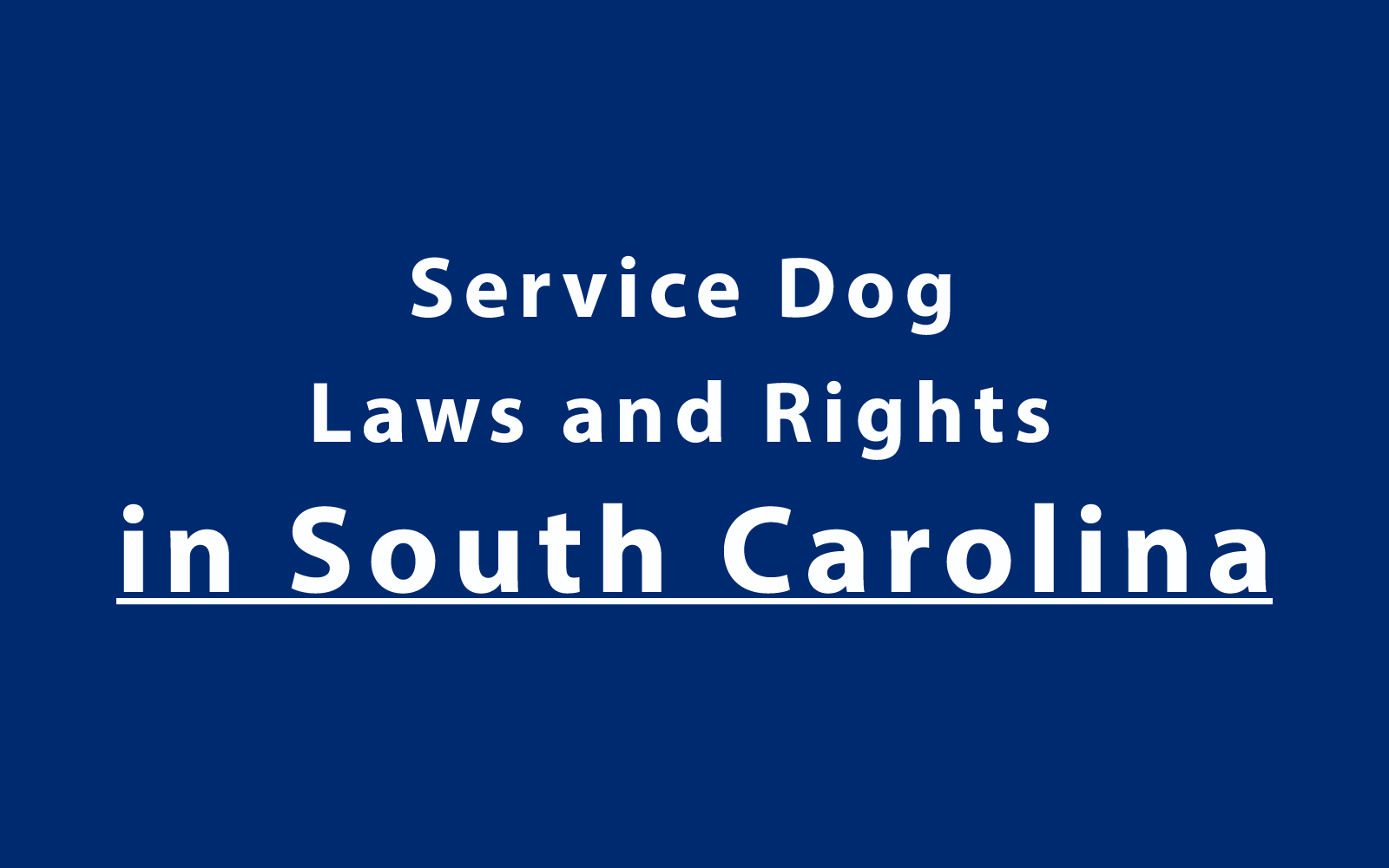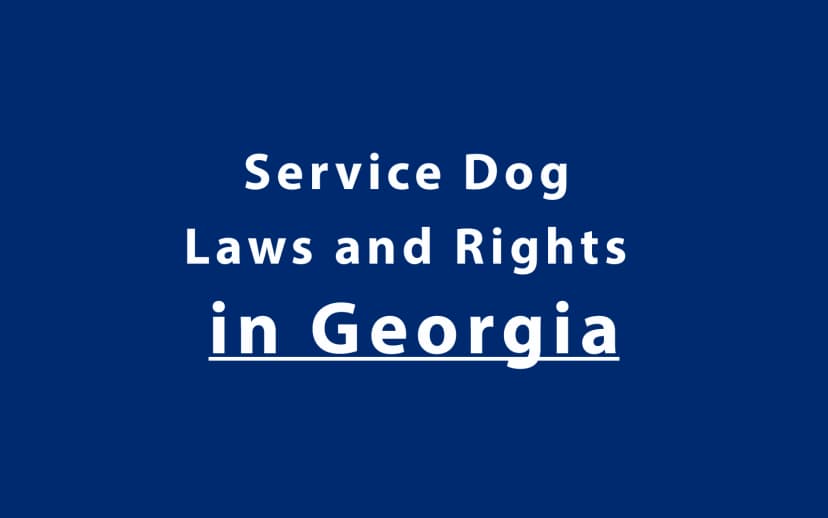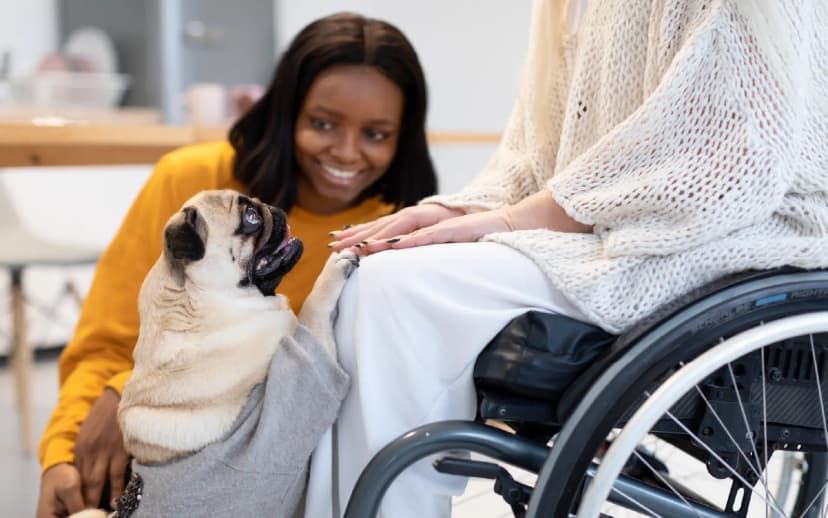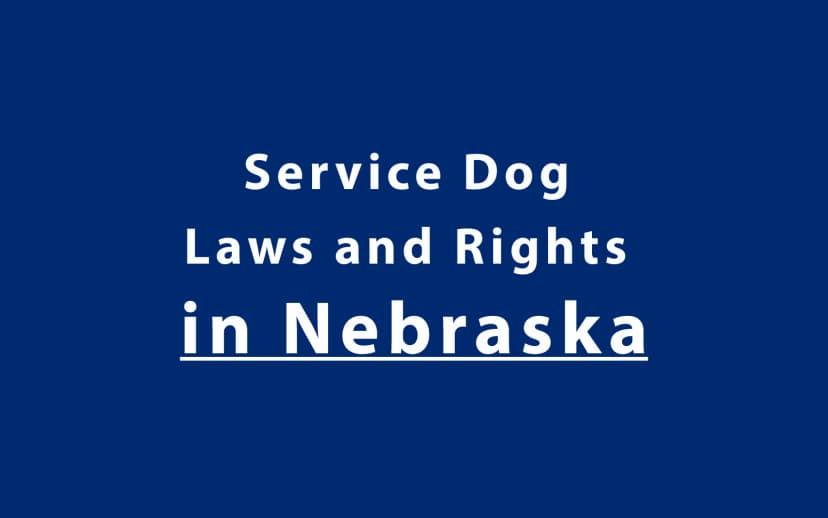Service Dog Laws and Rights in South Carolina

Service dogs are more than loyal companions—they are life-changing partners for people with disabilities, trained to perform specific tasks that help mitigate physical, psychiatric, or sensory impairments. In South Carolina, handlers are protected by federal and state laws that guarantee their right to live, travel, and access public spaces without discrimination.
This comprehensive guide explains how South Carolina enforces service dog laws in housing, public places, schools, workplaces, and more, ensuring that service dog handlers can navigate life confidently and lawfully.
What Qualifies as a Service Dog in South Carolina
Under the Americans with Disabilities Act (ADA) and South Carolina Code §44-41-115, a service dog is defined as a dog that is individually trained to perform tasks directly related to a person’s disability.
Tasks may include:
• Guiding individuals who are blind
• Providing mobility or balance support
• Alerting to seizures or medical conditions
• Interrupting dissociative or self-harming behaviors (especially for psychiatric service dogs)
• Retrieving medication or assisting with daily tasks
Not covered: Emotional Support Animals (ESAs) and therapy animals are not considered service animals under South Carolina or federal law because they are not task-trained.
Public Access Rights in South Carolina
Federal and state laws give service dog handlers the right to access most public spaces.
Places covered include:
• Restaurants and grocery stores
• Malls and retail stores
• Parks, libraries, and museums
• Medical offices and hospitals
• Hotels and public lodging
• Public transportation and government buildings
Permissible questions staff can ask:
1. Is the dog a service animal required because of a disability?
2. What task has the dog been trained to perform?
What staff may NOT do:
• Ask for certification or ID
• Request a demonstration of the dog’s task
• Inquire about the handler’s specific disability
Handlers must ensure their dogs:
• Are under control via leash or voice
• Are housebroken
• Do not act aggressively or disruptively
Access may be denied only if the dog is out of control or poses a direct health or safety risk.
Housing Rights in South Carolina
Under the Fair Housing Act (FHA) and the South Carolina Residential Landlord-Tenant Act, service dog users are entitled to reasonable accommodations in housing, even in no-pet properties.
Protections include:
• No pet rent, deposits, or breed/size restrictions may be imposed
• Landlords may request documentation only when disability and need are not obvious
Valid documentation must:
• Come from a medical or mental health professional
• Confirm the tenant’s disability and the need for the service dog
Tenants can file discrimination complaints with the SC Human Affairs Commission or the U.S. Department of Housing and Urban Development (HUD).
Employment Rights and Workplace Access
Title I of the ADA, supported by South Carolina employment law, prohibits workplace discrimination and provides a framework for reasonable accommodations.
Steps to request a service dog accommodation at work:
1. Submit a written request to your employer
2. Provide supporting documentation if the disability is not apparent
3. Participate in an interactive dialogue to determine feasible accommodations
Employers may deny a request only if it causes undue hardship, such as safety concerns or significant operational disruptions.
Employees can file complaints with the Equal Employment Opportunity Commission (EEOC) or the South Carolina Human Affairs Commission.
Travel and Transportation Rights
Air Travel
Under the Air Carrier Access Act (ACAA), service dogs are allowed to fly in the cabin with their handler on U.S. airlines.
Requirements:
• Submit a completed DOT Service Animal Transportation Form
• Maintain control over the dog at all times
• Comply with airline-specific check-in and behavioral policies
Public and Private Ground Transport
South Carolina public and private transport systems must follow ADA guidelines.
Access applies to:
• Buses and subways (e.g., Charleston Area Regional Transit, Greenville Transit)
• Amtrak trains
• Taxis and rideshare services (Uber, Lyft)
Refusal of service dog access is a civil rights violation and can be reported to the U.S. DOT or state agencies.
Schools and Educational Institutions
K–12 Public Schools
Federal laws such as the Individuals with Disabilities Education Act (IDEA) and Section 504 of the Rehabilitation Act require schools to allow trained service dogs to accompany students with disabilities.
Schools may ask for:
• Confirmation that the dog is trained
• Assurance that the dog won’t disrupt the educational environment
Parents or guardians are usually responsible for the care of the dog while at school.
Higher Education
Colleges and universities must allow service dogs in:
• Lecture halls
• Student housing
• Dining and recreation facilities
Students should coordinate with the campus disability services office to request accommodations.
Training and Registration Requirements in South Carolina
No official certification or registration is required by federal or South Carolina law. Self-training is allowed.
However, voluntary registration and structured training can be helpful in daily life, especially for housing and travel.
Training must include:
• Obedience and public behavior
• Reliable performance of disability-related tasks
AssistanceDogPartners.org offers:
• Optional registration kits with ID cards, vests, and digital records
Fraud and Misrepresentation in South Carolina
Falsely representing a pet as a service dog is illegal in South Carolina under SC Code §44-41-145.
Examples of fraud:
• Claiming an untrained pet as a service animal
• Using fake vests, certificates, or ID cards
• Mislabeling an ESA or therapy dog as a service dog
Penalties may include:
• Fines
• Criminal charges (misdemeanor)
• Denial of public access
Violations can be reported to local law enforcement or the South Carolina Human Affairs Commission.
State & Local Resources
• South Carolina Human Affairs Commission: https://schac.sc.gov
• Disability Rights South Carolina: https://www.disabilityrightssc.org
• SC Department of Disabilities and Special Needs (DDSN): https://ddsn.sc.gov
• Local service dog trainers in Charleston, Columbia, Greenville, Myrtle Beach
Frequently Asked Questions
Is service dog registration required in SC?
No. Registration is optional and not legally required.
Can landlords deny service dogs?
No. They must accommodate service dogs under the FHA.
Are psychiatric service dogs protected?
Yes. As long as they are trained to perform specific tasks.
Can schools deny a service dog?
Not if the dog is trained and the student has a qualifying disability.
What should I do if I’m denied access?
File a complaint with the SC Human Affairs Commission or the U.S. DOJ.
Conclusion
South Carolina upholds strong protections for service dog users under both federal and state laws. Whether you’re navigating a busy street, securing housing, flying cross-country, or accessing education or employment, your rights as a service dog handler are clear and enforceable.
Next steps:
• Begin training your dog or take the Public Access Test
• Register your service dog for easier access
• Contact us at AssistanceDogPartners.org for training, certification kits, or legal resources
Live life with independence and confidence—your service dog is legally protected to be right by your side.



